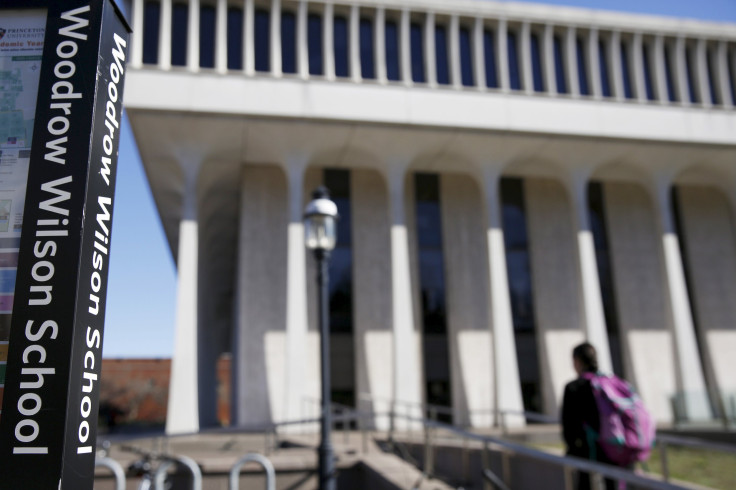Student Black Out Protests: Princeton Protesters Are 'Pampered Teenagers' Embracing Political Correctness, Ted Cruz Says

A student protest movement demanding racial justice at college campuses across the nation has been driven by “pampered teenagers who are scared of an idea that challenges their world view," Republican U.S. Sen. Ted Cruz of Texas said. Cruz, a presidential candidate who could become the first Cuban-American president, said the campus demonstrations suggest students are too "fragile" to accept known incidents of racism and move forward.
Cruz, 44, had problems with protests at Princeton University, his alma mater, in particular, where students at the New Jersey school have called for the Wilson School of Public and International Affairs to be renamed because of two-term Democratic president Woodrow Wilson's support for segregation in the federal workforce.
“I think it is more than a little ironic that the activities are targeting a leftist progressive Democrat like Woodrow Wilson,” Cruz said in an exclusive interview with the Guardian. “I am not a fan of Woodrow Wilson. I think his policies did a great deal of damage to this country, but that being said, I think the protesters at Princeton who are embracing this radical political correctness where they are claiming a right to be offended at anything they deem contrary to their vision of the world – that is completely antithetical to the mission of a university.”
Cruz continued: “Was Woodrow Wilson an unmitigated racist? Of course he was. Should we denounce it and call it out for what it was? Yes. But the idea that we should somehow be sanitizing our history because our ears are too fragile to recognize that the course of human existence has been a complicated course beset with human frailty – that undermines the entire purpose of a university.”
Wilson was Princeton’s president from 1902 to 1910. He is known for firing black federal employees because of his racial preferences. He was also a supporter of the Ku Klux Klan.
#StudentBlackOut Movement Demands Institutional Change in Schools https://t.co/g52y0WLayZ pic.twitter.com/FViLcbpfqB
— MU Breaking News (@iMUBreakingNews) November 23, 2015Students protests in recent weeks across the nation have called for more diverse faculties and racial sensitivity training supporting more integrated campuses. They have yielded some changes already, with Harvard University in Massachusetts recently announcing that the university’s undergraduate residences have agreed to forgo the title of “master" to describe senior faculty members who serve as the chief administrative officers within the houses, after students pointed out the title’s historical connotations relating to slavery in the United States. Princeton had taken a similar approach, announcing last month that masters of residential colleges would be renamed the “head of college.” Last month, Georgetown University students in Washington, D.C, convinced administrators to changes the names of two buildings honoring school presidents who organized the sale of Jesuit-owned slaves in order to relieve campus debt, the Washington Post reported.
Like Cruz, some have complained that the boycotts seek to erase history. “Memorialization, representing the past, needs to cause pain,” Yale historian David Blight told the Atlantic. Renaming buildings and programs could “take away both history and a primary impetus for addressing a host of related issues, including the low percentage of minorities on Yale’s faculty.”
© Copyright IBTimes 2024. All rights reserved.












